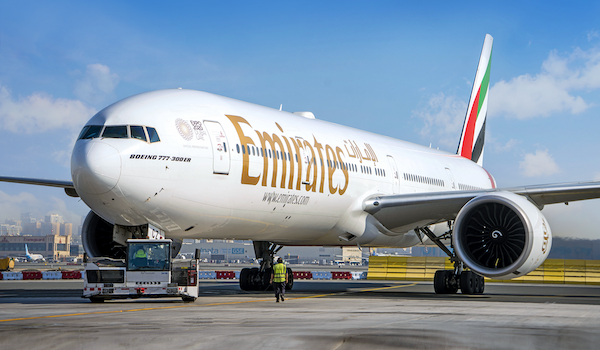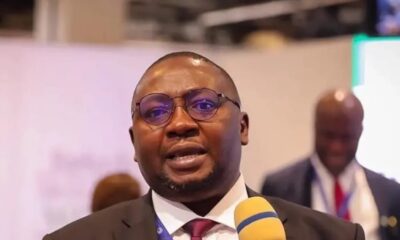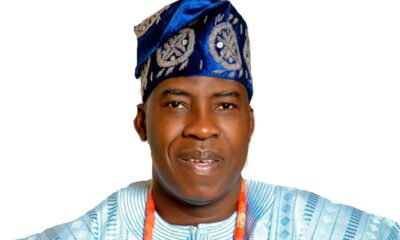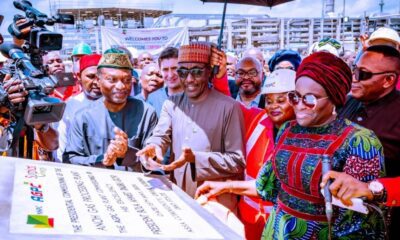Top Story
10th Assembly leadership: APC NWC unsatisfied with Tinubu zoning formula
…Seeks consultation choice of Akpabio, others
….South East Senators kick
By Joel Oladele, Abuja
The unrest rocking the ruling All Progressives Congress (APC) over the allocation of the 10th assembly leadership position is not over yet as the National Working Committee of the party seems not to be in total agreement with the zoning formula of the President-elect, Asiwaju Bola Ahmed Tinubu.
This was revealed in a statement signed by the National Publicity Secretary of the party, Barr. Felix Morka on Monday after the meeting of the NWC members in Abuja.
Recall that the President-elect, Asiwaju Bola Ahmed Tinubu had met with some party bigwigs over the weekend over the zoning formula of the 10th Assembly leadership position where it was allegedly agreed that the former Governor of Akwa-Ibom, Senator Godswill Akpabio(South-South) has been endorsed as the Senate president while Senator Barau Jubrin from Kano(North-West) is being tipped for Deputy Senate President.
Also, for the House of Representatives, while Hon. Abass Tajudeen from Kaduna state (North-West) is being considered for Speaker, the Deputy Speaker will be given to Hon. Ben Kalu from Abia State (South-East).
Just when Nigerians thought the outcome of the meeting with the President-elect over the weekend would put an end to the speculations and suspense, the statement by the NWC of the party on Monday stated otherwise as it points to the fact that it is not over yet.
In the statement signed by Barr. Morka, the NWC acknowledged the outcome of the meetings with the President-elect. However, the NWC emphasised the need for further and more extensive consultations with relevant stakeholders to ensure the support of the aspirants for the National Assembly leadership positions as well as party members nationwide.
The statement read in part: “The National Working Committee of the All Progressives Congress (APC) met today, Monday, May 8, 2023 to consider reports of consultations and meetings held with the President-Elect, His Excellency, Asiwaju Bola Ahmed Tinubu, other Party leaders and stakeholders on zoning arrangement for 10th National Assembly leadership positions.
“The NWC noted with respect the outcome of the meetings held between the President-Elect and the leadership of the NWC. The NWC called for further and better consultation with necessary stakeholders in order to assure the support of the aspirants to the National Assembly leadership positions and members of the Party nationwide.”
Morka therefore urged party leaders, members, and all Nigerians to continue working towards the peace and progress of the country both during and after the ongoing leadership transition period.
The zoning arrangement reported to the NWC is as follows: SENATE: Senate President – South-South Senator Godswill Akpabio (Akwa Ibom); Deputy Senate President – North West-Senator Barau Jubrin (Kano).
“HOUSE OF REPRESENTATIVES: Speaker. House of Representatives North West-Hon. Abass Tajudeen (Kaduna) and Deputy Speaker South East-Hon. Ben Kalu (Abia).
Nigerian NewsDirect gathered that dissatisfaction from the decision may further heighten in-house politicking among lawmakers-elect in both chambers, a development that has been speculated would further broaden exploiting grounds of interest blocs by those dissatisfied by the party’s decision.
The party has, however, officially remained silent on the rationale behind its decision and choice of leaving the North-Central out of the two principal offices in both chambers.
Recall NewsDirect had reported how that the complexities of the politicking over the composition of the 10th National Assembly have generated heated controversies.
A stakeholders’ meeting held, weekend, with the President-elect had generated controversies leading to speculations.
Nigerian NewsDirect had reported how the perceived choice of the President-elect and the party leadership for Akpabio had generated resistance.
A bloc, the South East Senate caucus had earlier called on the Senator Abdullahi Adamu-led NWC of the APC and the President-elect, to allow the South East geo-political zone get the slot of the Senate President.
According to the Caucus, the party should uphold the Principle of Natural Justice and Equity that it preaches, founded on reason to ensure that the South East zone is given the position of Senate President.
The Senators who noted that with the sidelining of the Southeast from producing the Presidential candidates of the major political parties before the general elections, said that the only way the zone could be compensated and given a sense of belonging is for the zone to produce the next Senate President, adding that this would restore confidence of the people from the South-East and South-South geo-political zones and indeed all Nigerians in the unity of the country.
In a Communique at the end of its meeting in Abuja, the Senate Caucus urged the President-elect to extend the same democratic opportunity he received from the outgoing administration that gave all aspirants equal opportunity to exercise their fundamental and constitutional rights during the APC Presidential Primaries.
The Communique was signed by Senators- elect from the South East for the 10th Senate, including Senator Orji Uzor Kalu; Senator Enyinnaya Abaribe; Senator Ifeanyi Ubah; Senator Victor Umeh; Senator Osita Izunaso; Senator Ezenwa Oyewuchi; Senator Tony Nwoye and Senator PC Ndubueze.
Others are Senator Okey Ezea; Senator Kelvin Chukwu and Senator Osita Ngwu.
The race for the principal offices of the incoming 10th National Assembly had attracted more dicey faces as more interest beyond zoning seems to have generated blocs tending towards sidelining the supremacy of party consensus.
Top Story
Account enrollment: Court validates CBN’s regulation, permits collection of customers’ social media handles


…Dismisses concerns, says social media handles not protected by privacy rights
…Financial institutions cleared to collect social media handles for KYC
By Sodiq Adelakun
The Federal High Court in Lagos has ruled in favour of the Central Bank of Nigeria (CBN) in a case challenging the regulation that requires financial institutions to collect their customers’ social media handles as part of the Know-Your-Customer (KYC) procedure.
Recall that the Socio-Economic Rights and Accountability Project (SERAP) had urged the court to compel CBN to withdraw its directive to banks and other financial institutions.
However, in the ruling, Justice Nnamdi Dimgba struck out the suit filed by Lagos-based lawyer, Chris Eke, who argued that the regulation violates the right to privacy of bank customers.
Eke had sought a declaration that the regulation contained in Section 6(a) (iv) of the Central Bank of Nigeria (Customer Due Diligence) Regulations, 2023, is undemocratic, unconstitutional, null, and void, as it contradicts Section 37 of the 1999 Constitution of the Federal Republic of Nigeria (as amended). However, Justice Dimgba ruled that the regulation does not breach the right to privacy of bank customers.
The CBN regulation is targeted to enhance customer due diligence and anti-money laundering measures, and requires banks to collect social media handles, among other personal information, from their customers.
The applicant had asked the court to grant an order of perpetual injunction, restraining CB from enforcing the regulation which requires financial institutions to request customers’ social media handles as part of normal bank customer due diligence requirements.
The CBN in its response to the suit, filed a notice of preliminary objection, challenging the competence of the suit. The apex bank also disagreed that the said regulation constitutes any interference with the private life of the applicant, as claimed.
The judgment came as Justice Dimgba dismissed a suit, stating that the notice of preliminary objection held merit and consequently struck out the case.
During the proceedings, Justice Dimgba emphasised that providing a social media handle is akin to furnishing email addresses, phone numbers, and other contact details for banking purposes.
He argued that such information aids in conducting due diligence to ascertain if an individual is suitable for conducting business with a bank.
Justice Dimgba further explained that the essence of having a social media account implies a willingness to engage in public communication, thus rendering privacy concerns unfounded.
According to him, “First, the Applicant claims that the requirements on the CBN Regulations for financial institutions to request and collect the social media handle of its customers as part of KYC infringes on his right to privacy.”
“This claim is very ambitious and amounts to a very far throw. The said Regulations are directed to and apply to financial institutions. It does not apply to private individuals such as the Applicant.
“Even if, as appears to be argued, that the Regulations itself would inevitably affect the Applicant, this claim is speculative for the simple reason that in nowhere in the affidavit in support was it stated that the Applicant operates an account with a financial institution and that the said institution had demanded his social media handle. So the suggestion that he would be affected by this Regulation, albeit negatively, is very speculative and at large.
“Secondly, there is also no deposition to the effect that any financial institution had begun to implement this Regulation and that its implementation had begun to create disruptions and inconvenience against the general population, in which case one could infer that the suit should be legitimated as a public interest litigation.
“Thirdly, assuming even that the banks had begun to implement these regulations, the applicant assuming he maintained any bank accounts or sought to open one, but is being hindered or irritated by the requirement of the Regulation to avail his social media handle as part of KYC, the Applicant still had a choice, which is to refuse to do business with any bank insisting on the information as part of its social media handle, but to seek other alternatives.
“Fourthly, and for all it is worth, I do not see how asking a banking or potential banking customer to provide his social media handle can ever amount to a breach of privacy.
“Granted that Section 37 of the Constitution of the Federal Republic of Nigeria 1999 (as amended) provides inter alia: The privacy of citizens, their homes, correspondence, telephone conversations and telegraphic communications is hereby guaranteed and protected.
“My view is that the provision of a social media handle is of the same genre as the provision of email address, phone numbers and other means by which a potential customer of a bank can be contacted.
“Thus, it is clear from the face of the Regulations as set out above that email addresses, phone numbers and social media handles are all provided for under clause 6iv just to show that the aim was not to pry on anyone but rather to provide alternative ways by which a customer of the bank can be contacted, and or due diligence conducted on the person to determine if the person is a fit and proper person to extend banking services to.
“I do not see how this infringes on the right to privacy. I should even say that the essence of having a social media account was for one to be publicly visible communication-wise. It, therefore, appears quite ironic, though wryly, that one can suggest that asking for information about a social media handle with which the individual exposes and immerses himself or herself in the public, can amount to a violation of privacy rights, which rights itself is all about isolation of one from public glare.
“It is also to my knowledge that even in filling some business applications, personal information of this sort, is sometimes requested, and parties generally oblige. If it does not constitute a breach of privacy, why should it now?
“A social media handle is left at large for the world to see, being in the public space, everyone enjoys the liberty to have access to it whether or not consent was obtained. It would be highly unreasonable to hold the Respondent in breach of privacy for what other persons have access to.
“The apprehension of the Applicant of his social interactions being monitored is manifestly speculative in itself and rather incredulous to believe that the financial institutions have the luxury of time to concern itself with such frivolities.
“On the whole, if I did not sustain the NPO, I would have dismissed the suit for the reasons stated. But the NPO having been sustained, the suit is therefore hereby struck out.”
Top Story
N1.3trn power debt: Tinubu approves payment, unveils plan to liquidate gas debts


President Bola Ahmed Tinubu has given approval for the payment of N1.3trn legacy debts owed power generation companies.
Minister of Power, Chief Adebayo Adelabu speaking at the 8th Africa Energy Market Place 2024 in Abuja said that President Bola Tinubu has approved a plan to liquidate the debts.
According to him, “Mr. President has approved the submission made by the Minister of State Petroleum (Gas) to defray the outstanding debts owed to the gas supply companies to power generation companies. The payments are in two parts, the legacy debts and the current debts. For the current debt, approval has been given to pay about N130 billion from the gas stabilisation fund which the Federal Ministry of Finance will pay.”
“The payment of the legacy debt will be made from future royalties in exchange for incomes in the gas subsector which is quite satisfactory to the gas suppliers. This will allow the companies to enter into firm contracts with power generation companies.
“For the power generation companies, the debt is about N1.3 trillion and I can also tell you that we have the consent of the President to pay, on the condition that the actual figures are reconciled between the government and the companies. This we have successfully done and it is being signed off by both parties now. Majority has signed off and we are engaging to ensure that we have 100 percent sign off.
“The debt will be paid in two ways, immediate cash injection and through a guaranteed debt instrument, preferably a promissory note. This assures the companies that in the next three to five years, the government is ready to defray these debts.”
The Minister further stated that the government was working to get the distribution companies solvent and effective by unbundling their operations along state boundaries.
He insisted that the areas covered by the current DisCos were too large for them to deliver effective services to consumers.
In the same vein, the Chairman of the Nigerian Electricity Regulatory Commission (NERC), Engr. Sanusi Garba lamented the poor financial state of the DisCos, noting that it is difficult for them to raise the needed capital to invest.
Engr. Garba pointed out that the challenges facing the sector were a culmination of all past inactions and missteps by those saddled with the responsibilities of managing the sector both at policy and operational levels.
According to him, “Today when you look at distribution companies they are clearly and technically insolvent, and you also want them to raise capital in terms of debt or equity. It’s a Herculean task. I also want to mention that implementing the power sector reform requires very strong political will to implement decisions that impact on the wider public.”
However, the African Development Bank (AfDB) disclosed that it has so far spent over $450 million to support various power sector projects and programmes with another $1 billion planned to support the power sector reform effort by the government.
Top Story
Emirates Airline to resume Lagos-Dubai flights October 1


Emirates Airline has disclosed that it will resume services to Nigeria from October 1, 2024, operating a daily service between Lagos and Dubai.
This development was announced in a statement on Thursday by the airline, which has its hub in the United Arab Emirates (UAE).
The airline disclosed that flight services will be operated using a Boeing 777-300ER.
“We are excited to resume our services to Nigeria. The Lagos-Dubai service has traditionally been popular with customers in Nigeria and we hope to reconnect leisure and business travellers to Dubai and onwards to our network of over 140 destinations.
“We thank the Nigerian government for their partnership and support in re-establishing this route and we look forward to welcoming passengers back onboard,” Emirates’ Deputy President and Chief Commercial Officer, Adnan Kazim, said.
Recall that Emirates Airlines had suspended its Dubai-Lagos flights in 2022 over its inability to repatriate trapped funds in Nigeria in the heat of the diplomatic row between the two countries.
This comes after Festus Keyamo, Minister Of Aviation And Aerospace Development in a post on his X (formerly Twitter) page had disclosed that he got correspondence from Emirates Airline when he visited Salem Saeed Al-Shamsi, ambassador of the United Arab Emirates (UAE) in Abuja.
”Yesterday, I paid a working visit to the Ambassador of the UAE to Nigeria, His Excellency, Salem Saeed Al-Shamsi at the UAE Embassy in Abuja. He handed me a correspondence from the Emirates Airline indicating a definite date for their resumption of flights to Nigeria,” Keyamo said.
-
Finance4 months ago
Court orders Sen. Victor Umeh to repay N136m bank debt to AMCON
-



 Abuja Update3 months ago
Abuja Update3 months agoUNDP, FG partnership needed to achieve inclusion, equity- Minister
-
capital market2 years ago
Rt.briscoe, FBNH, Others halts negative performance of stock market
-
Abuja Update2 months ago
Banks drive stock market performance with N147bn gain
-



 Health1 month ago
Health1 month agoCapacity training will reduce migration of health workers- NPHCDA
-



 Business3 weeks ago
Business3 weeks agoTingo Group unveils Tingo Electric, Tingo Cola drink at Lagos launch
-
Submission Guidelines4 months ago
CALL FOR SUBMISSIONS: POETRY COLUMN-NND
-
News4 months ago
Oil thieves sponsoring malicious media campaign against Navy – Spokesman
















